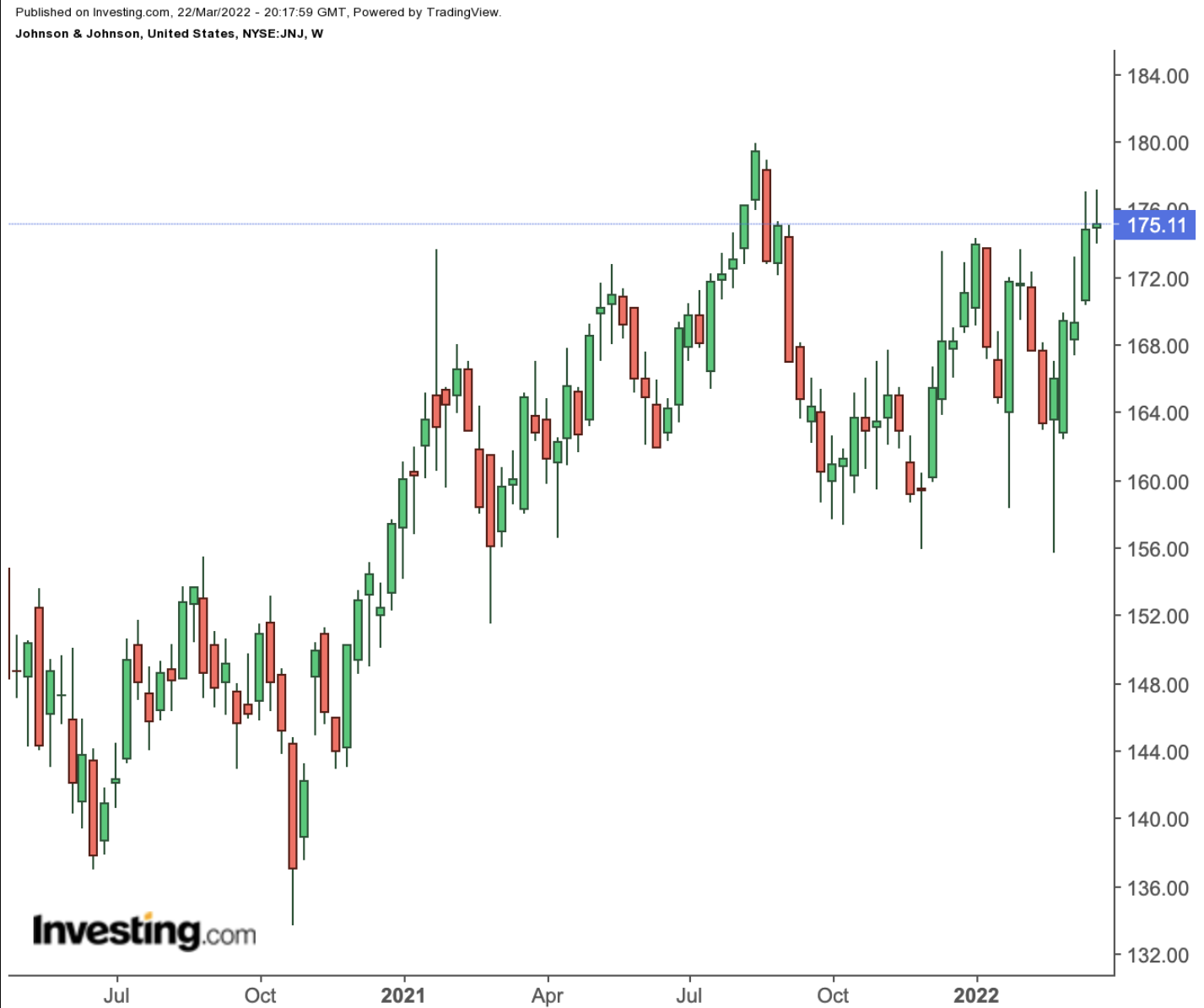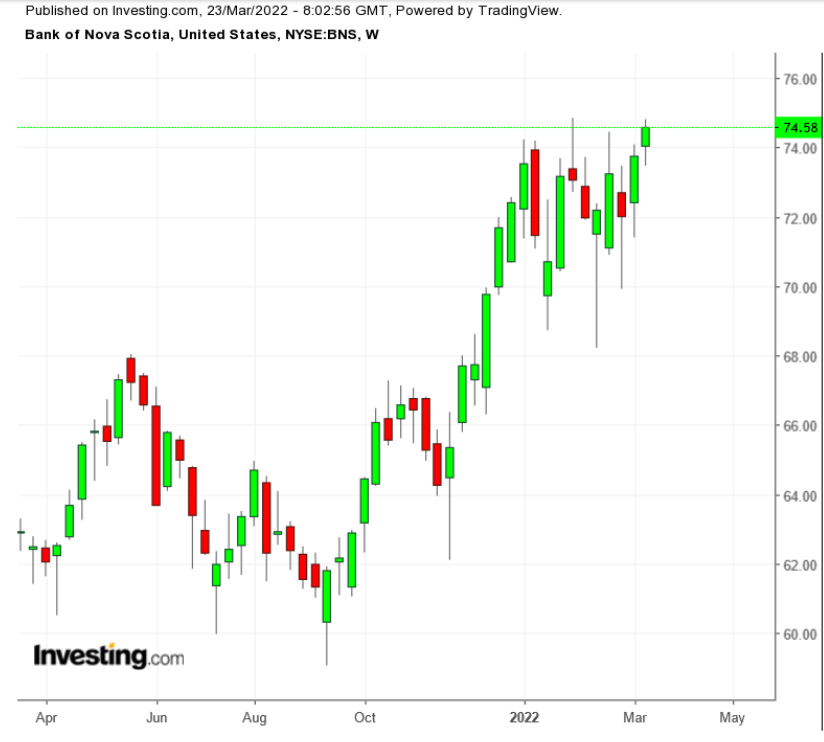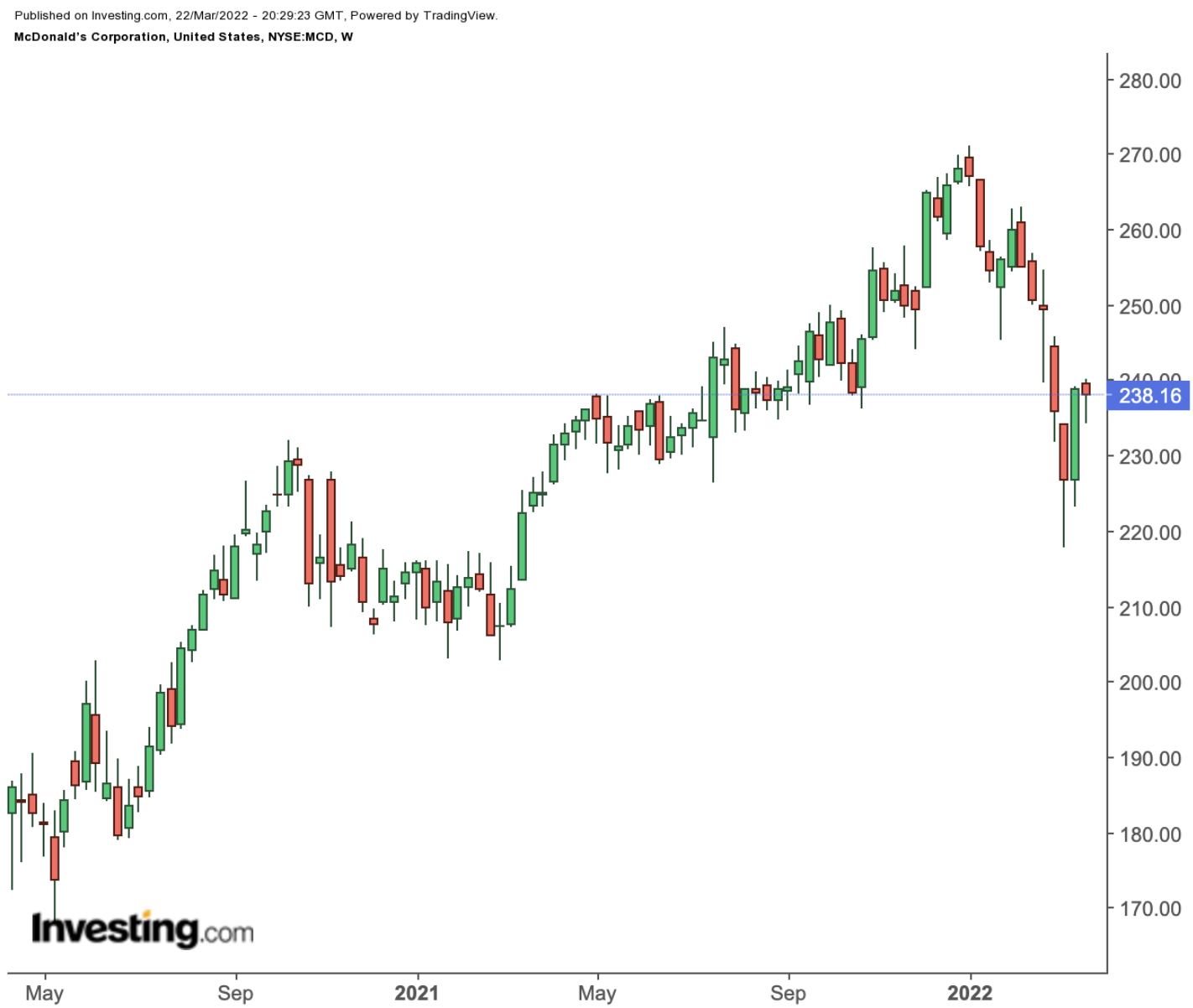Bill Gross warns on gold momentum as regional bank stocks tumble
If your goal as an investor is to build a reliably solid income stream for retirement, keeping quality dividend-paying stocks in your portfolio is essential.
Since 1926, dividends have contributed to approximately 32% of the S&P 500’s total returns, while capital appreciation contributed to 68%, according to research provided by S&P Dow Jones Indices.
One way to build an income-generating portfolio is through stocks from companies with a consolidated history of raising their yearly payouts. Such firms usually run mature businesses that could provide stability and growth for your investments.
Keeping these benefits in mind, we’ve picked the following three stocks, which could offer both growth and fixed income for current or future retirees:
1. Johnson & Johnson
Our first pick is the global pharmaceutical leader Johnson & Johnson (NYSE:JNJ). The New Jersey-based healthcare giant is precisely the kind of dividend stock that retirees—or those planning to retire—should buy. It closed Tuesday at $175.

JNJ shares are weathering this year’s volatility much better than many other stocks. Propelled by a better-than-expected earnings report, JNJ stock is up more than 2% this year during a period when the S&P 500 is down more than 5.2%. The timing for buying a dividend stock is also good right now, as COVID-19 becomes less disruptive for the business.
As for rewarding investors, few companies have done better than Johnson & Johnson. It has increased its quarterly dividend every year for 58 consecutive years.
This remarkable performance puts Johnson & Johnson among an elite group dubbed Dividend Kings, companies with at least five decades of annual dividend hikes. JNJ pays $1.06 a share quarterly with an annual yield of 2.42%.
Adding to the compelling case for JNJ: health care stocks provide a regular and growing income stream as they offer services that remain necessary even during a recession. Plus, economic swings don’t typically curb the roll-out of new drugs and medical devices.
2. Bank Of Nova Scotia
In recent years, buying quality Canadian banking stocks has proven to be a successful play for income investors. The strength of the nation’s economy and its sound financial regulatory environment provide a solid foundation for the sector.
The Bank of Nova Scotia (NYSE:BNS), Canada’s third-largest bank, is currently offering one of the highest yields among the country’s top six banks, and it could be an excellent addition to any long-term retirement portfolio. Shares closed Tuesday at $74.58.

Canada’s top banks generally pay between 40-50% of their income in dividends each year, making them attractive for retirees. Furthermore, Canadian lenders are in good shape to benefit from the post-COVID economic recovery and a spike in demand for commodities, which make up a significant portion of the country’s exports.
At Bank of Nova Scotia, also known as Scotiabank, Chief Executive Officer Brian Porter has successfully restructured the lender’s international business by selling off small or underperforming operations and doubling down in larger, more promising markets.
This shift seems to be paying off. In the last quarterly earnings report, the lender’s international unit posted 43% growth in profit from a year earlier, helped by falling non-interest expenses.
Growth in the bank’s earnings has resulted in dividend increases in 43 of the last 45 years—one of the most consistent records for dividend growth among major Canadian companies. Currently, Scotiabank pays an $0.80 quarterly payout, which translates into an annual dividend yield of 4.27%.
3. McDonald’s
The global fast-food chain McDonald’s (NYSE:MCD) provides another solid avenue for earning steadily growing retirement income. The company has raised payouts every year since 1976, when it first started paying dividends. MCD closed Tuesday's session at $238.12, down 11.1% year-to-date.

The Chicago-based behemoth has many qualities that retirees look for in a top income stock: a global competitive advantage over rivals, a solid recurring revenue model and a great history of compensating its investors.
MCD stock doesn’t look attractive in the short run, given the current macro environment of rising commodity costs, higher wages, and the Russia-Ukraine war. The company also missed estimates in its latest earnings report. Still, buy-and-hold investors should utilize this idle period to lock in a higher dividend yield.
While lowering its price target on shares of McDonald’s to $280 from $290, Oppenheimer said in a note last week that investors should buy the dip, adding MCD’s above-average exposure to Russia/Ukraine is now fully priced-in.
MCD pays quarterly dividends of $1.38 per share. That translates to an annual dividend yield of 2.32% at the current stock price. With a manageable payout ratio of 73%, the company is in a solid position to continue delivering dividend growth.
